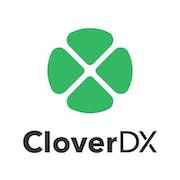Find the perfect data management platform (DMP) software for your business needs with our comprehensive buyers' guide. Compare top providers and make an informed choice today!
Data is king and companies of all sizes need to have the ability to effectively manage their data if they hope to remain competitive in their respective markets. This is where data management platforms (DMPs) come into play. It is essentially a software solution designed to collect, organize, and analyze large amounts of data from a wide variety of sources. With the right one in place, businesses can gain valuable insights into their customers, optimize their marketing campaigns, and ultimately drive growth. However, with so many options on the market, selecting the right one can be a daunting task. In this guide, we will take a closer look at what DMPs are, what they can do for your business, and key factors to consider when selecting the right solution for your needs.
What is data management platforms (DMP) software?
Data management platforms (DMPs) are essential tools that enable businesses to collect, manage, and analyze customer, audience, and marketing data. In essence, DMPs serve as central hubs for all data storage and analysis activities relating to an organization's customer communication strategies. A data management platform unifies first, second, and third-party audience data from various sources, including websites, mobile apps, customer relationship management (CRM) systems, and loyalty programs. Additionally, it allows businesses to make informed decisions by providing comprehensive data analytics that can enhance marketing campaigns, customer engagements, and sales metrics.
This tool has become an increasingly vital part of modern data-driven businesses, and there are several use cases for its adoption. The following are some of its most common use cases:
- Audience building: It can help companies create detailed user profiles, based on demographics, behavior, and interests.
- Audience analysis: It can also analyze customer data, such as engagement profiles, to identify patterns and develop insights into their audiences.
- Advertising data integration: This solution can connect media buying platforms with first-party data to create more effective advertising campaigns.
- Cross-device targeting: DMPs can combine data from a variety of devices and channels to identify a single customer and create a personalized experience for them, irrespective of device or channel.
- Advanced security: The software offers a layer of security and control for businesses, adhering to strict data protection requirements, in industries like healthcare, finance or government institution Survey findings from LLCBuddy have found that 60% of respondents said the finance department is important in data management and governances.
Several industries, such as retail, e-commerce, advertising, media, and healthcare, use DMPs to store and manage their vast customer and audience data. According to recent research, this technology is most effectively used by businesses that have large user bases, because they can better manage customer data and identify trends across multiple channels. It has become an essential tool for businesses looking to improve their marketing and customer engagement strategies and stay ahead of their competition in an increasingly data-driven business environment.
What are the benefits of investing in data management platforms (DMP) software?
DMP solution is a crucial component for businesses and with the ever-increasing amount of data produced by customers, companies need a way to manage, organize, and analyze this information to make effective decisions and optimize their marketing strategies. It offers a solution to this problem, providing a single platform to store, process, and analyze customer data. Here are its main benefits:
- Improved customer engagement: This solution allows businesses to build a more complete customer profile by collecting and integrating data from various sources such as CRM, social media, email campaigns, and website analytics. This holistic view of the customer leads to a better understanding of user behavior, preferences, and needs. This insight aids in making more informed business decisions about content, timing, and delivery of their marketing messages.
- Targeted advertising: With DMP software, businesses can segment their audience based on various criteria such as customer demographics, psychographics, behavior, and interests. This segmentation enables businesses to create targeted advertising campaigns that are relevant to each audience group, leading to higher engagement, conversion rates, and customer satisfaction.
- Personalized content: It enables businesses to personalize their content based on the customer's profile, behavior, and preferences. Personalized content enhances the customer experience, leading to higher engagement and conversion rates.
- Improved ROI: With DMP software, businesses can measure the effectiveness of their marketing campaigns in real-time using metrics such as reach, frequency, engagement, and conversion rates. This insight enables businesses to optimize their campaigns, reducing costs and improving ROI.
- Enhanced data security: This program provides a secure way to store customer data, reducing the risk of data breaches, and ensuring compliance with data protection regulations such as GDPR and CCPA.
10 main features of data management platforms (DMP) software
Data management platforms (DMPs) are essential for marketers to tailor advertising and customer experiences. These platforms have some common features, including:
1. Audience building:
This function helps marketers build customer segments based on factors such as browsing history, purchase history, demographics, interests, and behavior. This enables marketers to create targeted campaigns that resonate with their target audience.
2. Data analysis:
DMPs employ sophisticated data processing algorithms to analyze data from multiple sources in real-time. This helps marketers to identify patterns and insights that can be used to optimize campaign analysis.
3. Cross-device targeting:
This feature provides the ability to target customers across multiple devices and channels. This ensures that campaigns are consistent and effective across all touchpoints.
4. Advertising data integration:
DMPs integrate advertising data from multiple sources, such as AdWords and Facebook Advertising, into a single platform. This makes it easier for marketers to measure campaign performance and identify areas for optimization. According to Webinarcare, the vast majority of companies wanting to advertise did offer a platform of data management to their customers and 28 percent of them had a contract of use to one or more platforms.
5. Real-time monitoring:
It provides real-time data on campaign performance, allowing marketers to optimize campaigns on the fly.
6. Artificial intelligence and machine learning:
DMPs employ AI and machine learning algorithms to automate campaign optimization and identify new opportunities for targeting and engagement.
7. Multi-channel engagement:
It enables marketers to engage with customers across multiple channels, such as email, social media, and mobile apps.
8. Scalability and performance:
It can also handle large amounts of data and offer high scalability and performance, ensuring that campaigns are delivered smoothly and efficiently.
9. Continuous results:
DMPs provide continuous data on customer behavior and campaign performance, helping marketers to refine their strategies and improve their results over time.
10. Security:
The solution offers high levels of security to protect customer data platforms and ensure compliance with data privacy regulations.
Things to consider when looking for a data management platforms (DMP) solution
Businesses must carefully evaluate tools that can help them manage large volumes of data effectively. A data management platform (DMP) software can aid in the process by consolidating data from multiple sources and organizing it into useful insights. When choosing a DMP, some key factors that businesses should consider include:
- Scalability:As the amount of data a business generates grows, it's crucial to have a DMP that can scale alongside it.It's important to ensure that the one being considered can handle ever-increasing data volumes, and won't become a bottleneck in the future.
- Integration: The ability to seamlessly integrate with existing technologies is important when selecting a DMP. The chosen one must be able to work with any other systems currently in use within the business's IT infrastructure.
- Security: As data is often sensitive in nature, it's crucial to have a DMP that demonstrates robust security features. Encryption, authorization, and authentication measures should be in place to protect sensitive data against external threats.
- Data quality: A reliable one should have the capability to identify and address data quality issues, such as duplicate records, inconsistent data formats, and incomplete information. Data quality should be maintained throughout the data integration and migration processes.
- Analytics features: It should offer powerful analytics capabilities to support the insights generation process. It should be able to provide detailed reports on visitor behavior, customer preferences and other trends, with the ability to apply this information toward improving business performance.
- Customization: A DMP that can be customized to fit specific business requirements is essential. It should provide tools for businesses to tailor the system to their liking and ensure that they can manage their data effectively.
- Usability: A user-friendly interface that is easy to navigate helps ensure DMP adoption and user engagement. It's important to ensure that the one being evaluated is easy to use and navigate, with little or no dependence on technical staff.
Selecting the right DMP tool can bring significant business value by providing functions required to handle large volumes of data effectively. Businesses should evaluate the different factors and requirements that suit their needs for data consolidation, which in turn will support the generation of reliable insights that can lead to better decision-making.
Industry trends for data management platforms (DMP) program
Data management platforms (DMP) are critical tools that have become integral to the success of modern businesses. They enable companies to collect, manage, organize, and activate their data for various purposes. Several trends are likely to shape this software's landscape. Here are its top trends that we expect to see in the coming years:
1. Greater focus on data privacy and security
With the increasing incidence of data breaches and cyber-attacks globally, data management platforms are likely to become more privacy and security-focused. DMPs will continue to ensure that data is secure and used ethically by limiting data access and handling it with utmost care.
2. Integration with artificial intelligence and machine learning
DMPs that integrate with AI and Machine Learning (ML) will enable businesses to leverage the massive amounts of data they collect to gain a competitive advantage. A solution that offers advanced analytics capabilities will be capable of processing and understanding large amounts of data at a faster rate.
3. Personalization
This technology will continue to enable businesses to provide highly personalized experiences to their customers. With sophisticated algorithms, DMPs will allow companies to deliver personalized experiences across multiple media channels.
4. Increasing use of open source DMPs
Open source DMPs are becoming increasingly popular as businesses look for cost-effective ways to manage and analyze their data. In the years ahead, we expect to see more companies adopt open-source solutions in their data management strategies.
5. Cloud-based DMPs
With more companies looking to move away from on-premise installations, demand for cloud-based DMPs is set to grow. It offers a more flexible and scalable solution, allowing businesses to store and process massive amounts of data with ease.
As we move further into the future, DMPs will continue to play a crucial role in the success of businesses. While ensuring data privacy and security remains a top priority, integration with advanced technologies such as AI and ML, personalization, adoption of open source solutions, and cloud-based architecture are all set to play an increasingly vital role in the world of data management.
Conclusion
In summary, data management platforms software is crucial for businesses to manage and analyze their customer data effectively. By improving customer engagement, enabling targeted advertising, personalizing content, increasing ROI, and enhancing data security, DMP software provides a comprehensive solution for marketing teams to optimize their strategies and improve their overall performance










